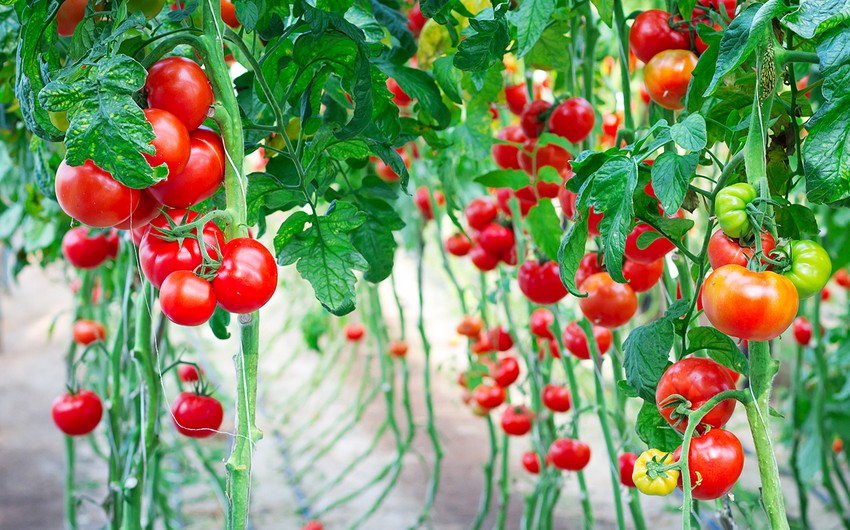In a controlled greenhouse at Wageningen University & Research in the Netherlands, researchers have identified a way that shows promise for improving crop yields in simulated Martian soil, with different crops grown together in a method called "intercropping" pioneered by ancient Maya farmers, Report informs referring to Reuters.
In their experiments, the researchers grew cherry tomatoes, peas and carrots together in pots.
Tomatoes grown in this manner produced about double the yield of tomatoes grown alone - or "monocropped" - in the same simulated Martian soil, with more and bigger fruit. The tomatoes also flowered and matured earlier, gave more fruit per plant and had thicker stems.
The yields of peas and carrots did not increase with intercropping.
The crops were grown in simulated Martian regolith - soil with no organic matter - developed by NASA researchers that is a near-perfect physical and chemical match to real Martian soil. The researchers added beneficial bacteria and nutrients. They also controlled the gases, temperature and humidity inside the greenhouse to match conditions expected in a Martian greenhouse.
While human bases on Mars are commonplace in movies, they remain in the realm of science fiction. But the US space agency NASA, for instance, is developing capabilities needed to send people to Mars in the 2030s.
Intercropping involves cultivating plants possessing complementary properties that can help each other grow to optimize the use of resources including water and nutrients.
The researchers said the tomato plants in intercropping may have benefited from their proximity to the pea plants because the latter are good at turning nitrogen from the air, with the help of bacteria introduced into the soil, into a key nutrient.


 https://static.report.az/photo/5aab980b-b883-3edd-8b8e-5d27f30588d2.jpg
https://static.report.az/photo/5aab980b-b883-3edd-8b8e-5d27f30588d2.jpg

